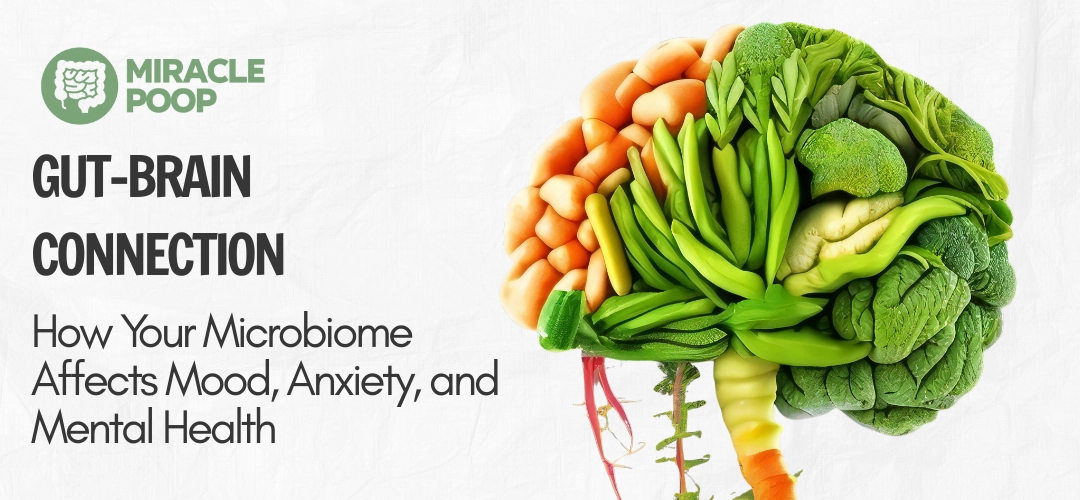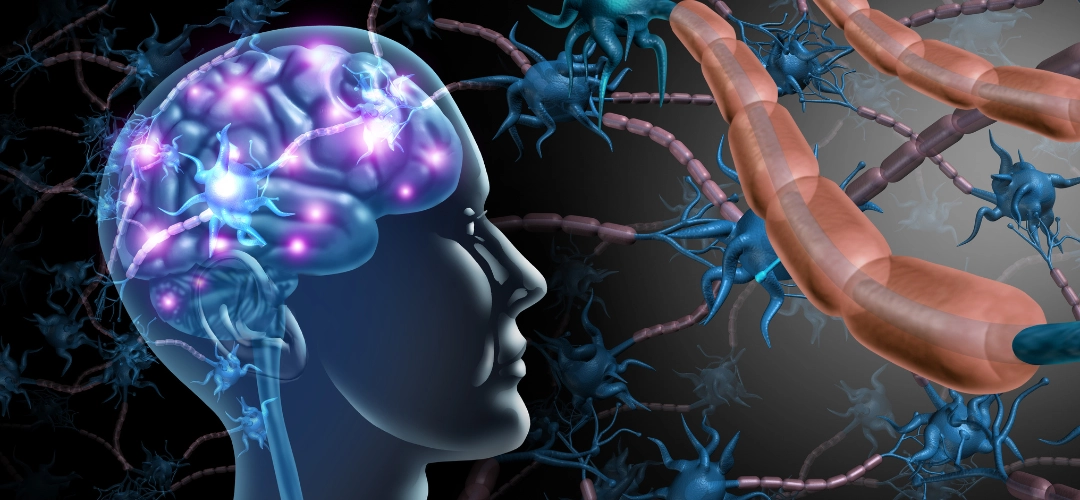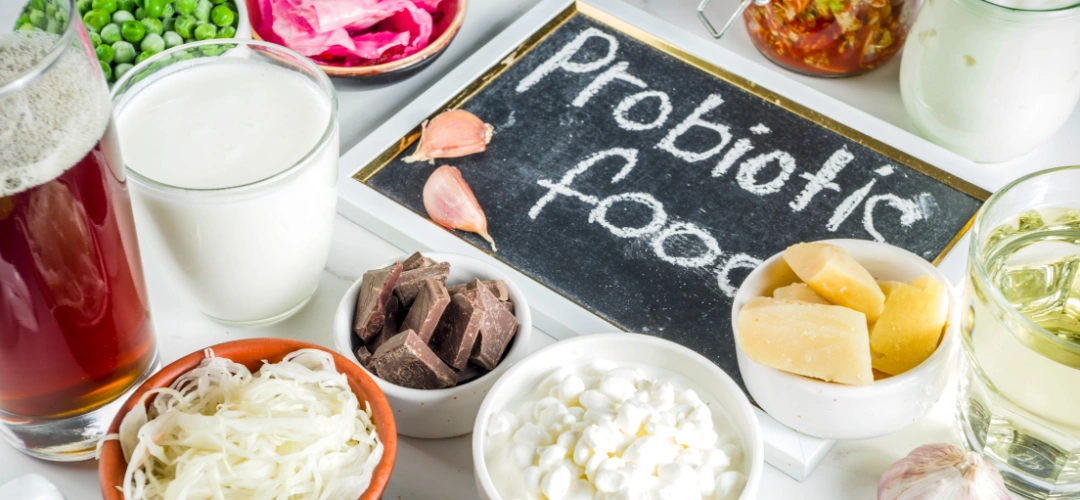Have you ever had “butterflies in your stomach” before a big event?
Or felt your mood shift after a heavy meal? That’s not just in your head, it’s in your gut, too. Your digestive system and your brain are in constant communication through what scientists call the gut-brain connection. And the messengers in this system? Your gut bacteria.
In this article, we’ll break down how your microbiome influences mental health, explore the science behind the gut-brain connection, and show you practical ways to support both your mood and your microbes.

1. What Is the Gut-Brain Connection?
The gut-brain axis is a two-way communication system between your central nervous system (your brain and spinal cord) and your enteric nervous system (your gut’s neural network). It’s like a real-time chat line between your belly and your brain.
Your gut microbiome (trillions of bacteria, viruses, and fungi) plays a major role in this communication. These microbes produce neurotransmitters such as serotonin, dopamine, and GABA, which regulate your mood, stress response, and sleep.
💡 Fun fact: Around 90% of the body’s serotonin is produced in the gut!

2. How Gut Health Impacts Mental Health
When your microbiome is imbalanced (a condition called dysbiosis), it can lead to increased inflammation, disrupted neurotransmitter production, and weakened gut lining, all of which can affect brain function.
Researchers have linked dysbiosis to:
- Anxiety and depression
- Brain fog and memory problems
- Stress sensitivity
- Fatigue and sleep disturbances
Studies have even shown that probiotic supplementation can reduce symptoms of anxiety and depression in some people.

3. Supporting the Gut-Brain Connection Naturally
Here’s how to nurture a microbiome that keeps your brain happy too:
✅ Eat fermented foods – like sauerkraut, kimchi, kefir, and miso
✅ Boost prebiotics – fiber from garlic, onions, leeks, bananas, and oats feeds your good bacteria
✅ Try psychobiotics – specific probiotic strains like Lactobacillus rhamnosus and Bifidobacterium longum support mood
✅ Manage stress – meditation, exercise, and deep breathing help balance the gut-brain connection
✅ Sleep well – a rested brain and a regulated gut go hand in hand

4. When to Consider Deeper Support
If you’re struggling with persistent mood issues or digestive discomfort, it may be time to dig deeper. Some individuals benefit from Fecal Microbiota Transplantation (FMT) or targeted functional medicine protocols. Always consult a professional when symptoms are severe or long-lasting.
Conclusion: Your Mood Begins in Your Microbiome
Your gut isn’t just digesting your food; it’s shaping how you feel, think, and even sleep. By nurturing your microbiome, you’re also taking a powerful step toward better mental health.
📚 Want to learn more? Read our Complete Guide to FMT Therapy next.
Welcome to our gut health blog, your go-to source for expert-backed content on digestion, probiotics, prebiotics, and microbiome therapies like FMT. Whether you’re looking to understand the science behind gut health or searching for real stories and natural tips to heal your digestive system, you’ll find it all here. Start exploring our curated articles written to help you improve your gut naturally.
